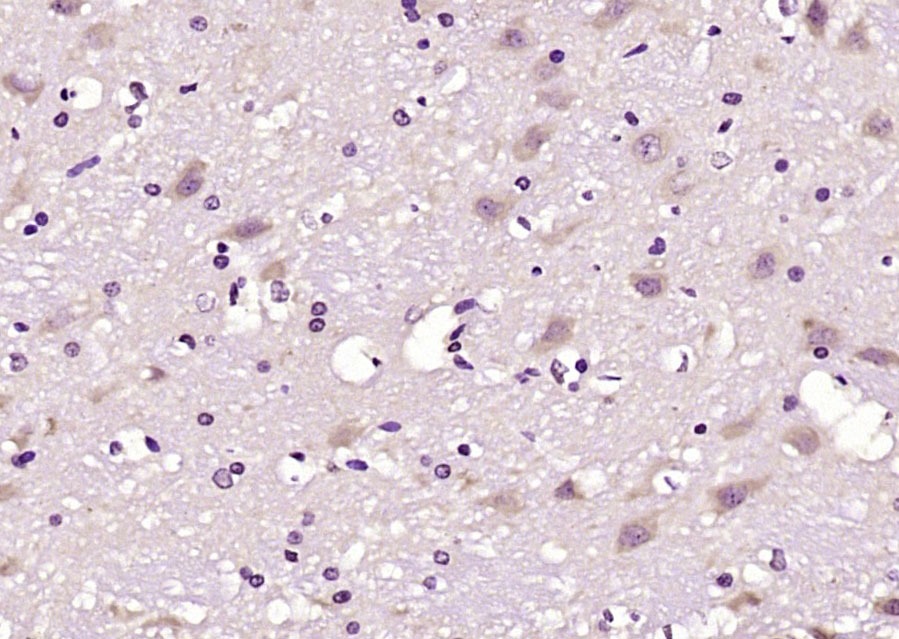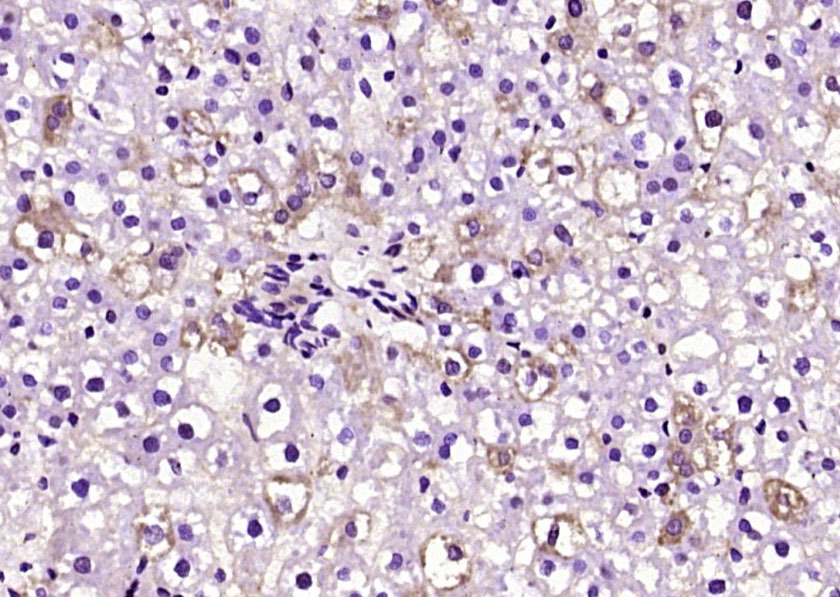Shopping Cart
Remove All Your shopping cart is currently empty
Your shopping cart is currently empty
Anti-Phospho-LATS1 (Ser909) Polyclonal Antibody is a Rabbit antibody targeting Phospho-LATS1 (Ser909). Anti-Phospho-LATS1 (Ser909) Polyclonal Antibody can be used in IF,IHC-Fr,IHC-P.
| Pack Size | Price | USA Warehouse | Global Warehouse | Quantity |
|---|---|---|---|---|
| 50 μL | $221 | 7-10 days | 7-10 days | |
| 100 μL | $373 | 7-10 days | 7-10 days | |
| 200 μL | $529 | 7-10 days | 7-10 days |
| Description | Anti-Phospho-LATS1 (Ser909) Polyclonal Antibody is a Rabbit antibody targeting Phospho-LATS1 (Ser909). Anti-Phospho-LATS1 (Ser909) Polyclonal Antibody can be used in IF,IHC-Fr,IHC-P. |
| Synonyms | WARTS protein kinase (h-warts), WARTS, Serine/threonine-protein kinase LATS1, p-LATS1 (Ser909), p-LATS1 (S909), LATS1 (p-Ser909), LATS1 (p-S909), LATS1, Large tumor suppressor homolog 1 |
| Ig Type | IgG |
| Reactivity | Rat (predicted:Human,Mouse,Chicken,Dog,Pig,Cow,Horse,Rabbit) |
| Verified Activity | 1. Paraformaldehyde-fixed, paraffin embedded (rat brain); Antigen retrieval by boiling in sodium citrate buffer (pH6.0) for 15 min; Block endogenous peroxidase by 3% hydrogen peroxide for 20 min; Blocking buffer (normal goat serum) at 37°C for 30 min; Antibody incubation with (Phospho-LATS1 (Ser909)) Polyclonal Antibody, Unconjugated (TMAB-01448) at 1:200 overnight at 4°C, followed by operating according to SP Kit (Rabbit) instructionsand DAB staining. 2. Paraformaldehyde-fixed, paraffin embedded (rat liver); Antigen retrieval by boiling in sodium citrate buffer (pH6.0) for 15 min; Block endogenous peroxidase by 3% hydrogen peroxide for 20 min; Blocking buffer (normal goat serum) at 37°C for 30 min; Antibody incubation with (Phospho-LATS1 (Ser909)) Polyclonal Antibody, Unconjugated (TMAB-01448) at 1:200 overnight at 4°C, followed by operating according to SP Kit (Rabbit) instructionsand DAB staining.   |
| Application | |
| Recommended Dose | IHC-P: 1:100-500; IHC-Fr: 1:100-500; IF: 1:100-500 |
| Antibody Type | Polyclonal |
| Host Species | Rabbit |
| Subcellular Localization | Cytoplasm, cytoskeleton, centrosome. Cytoplasm. Cytoplasm, cytoskeleton, spindle pole. |
| Tissue Specificity | Expressed at high levels in heart and skeletal muscle and at lower levels in all other tissues examined. |
| Construction | Polyclonal Antibody |
| Purification | Protein A purified |
| Appearance | Liquid |
| Formulation | 0.01M TBS (pH7.4) with 1% BSA, 0.02% Proclin300 and 50% Glycerol. |
| Concentration | 1 mg/mL |
| Research Background | This gene encodes a serine/threonine protein kinase belonging to the LATS tumor suppressor family. The protein localizes to centrosomes during interphase, and early and late metaphase. It interacts with the centrosomal proteins aurora-A and ajuba and is required for accumulation of gamma-tubulin and spindle formation at the onset of mitosis. It also interacts with a negative regulator of p53 and may function in a positive feedback loop with p53 that responds to cytoskeleton damage. Additionally, it can function as a co-repressor of androgen-responsive gene expression. [provided by RefSeq]. |
| Immunogen | KLH conjugated synthesised phosphopeptide: human LATS1 around the phosphorylation site of Ser909 |
| Antigen Species | Human |
| Gene Name | LATS1 |
| Gene ID | |
| Protein Name | Serine/threonine-protein kinase LATS1 |
| Uniprot ID | |
| Biology Area | Tumor suppressors,Kinases,Cytokinesis,Cdk Regulators |
| Function | Negative regulator of YAP1 in the Hippo signaling pathway that plays a pivotal role in organ size control and tumor suppression by restricting proliferation and promoting apoptosis. The core of this pathway is composed of a kinase cascade wherein STK3/MST2 and STK4/MST1, in complex with its regulatory protein SAV1, phosphorylates and activates LATS1/2 in complex with its regulatory protein MOB1, which in turn phosphorylates and inactivates YAP1 oncoprotein and WWTR1/TAZ. Phosphorylation of YAP1 by LATS2 inhibits its translocation into the nucleus to regulate cellular genes important for cell proliferation, cell death, and cell migration. Acts as a tumor suppressor which plays a critical role in centrosome duplication, maintenance of mitotic fidelity and genomic stability. Negatively regulates G1/S transition by down-regulating cyclin E/CDK2 kinase activity. Negative regulator of the androgen receptor. |
| Molecular Weight | Theoretical: 124 kDa. |
| Stability & Storage | Store at -20°C or -80°C for 12 months. Avoid repeated freeze-thaw cycles. |
| Transport | Shipping with blue ice. |
| Size | Quantity | Unit Price | Amount | Operation |
|---|

Copyright © 2015-2026 TargetMol Chemicals Inc. All Rights Reserved.